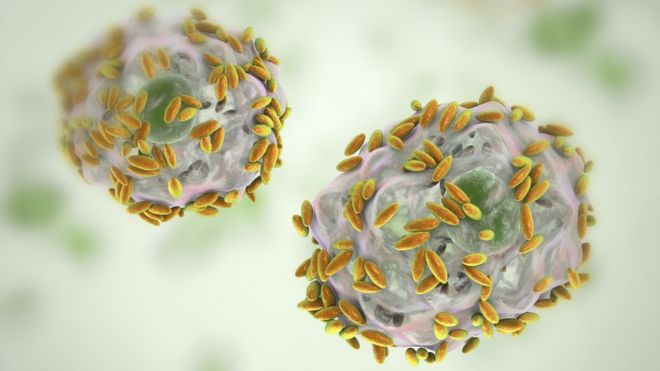Scientists at the Institute for Health Metrics and Evaluation (IHME) are advocating for research funding to combat the rising number of bacterial pathogen deaths in Ghana.
According to the University of Washington's independent global health research center, Ghana recorded 88,649 infection-related deaths in 2019.
According to the analysis, 49,066 deaths were caused by bacterial infections, including tuberculosis, 25,309 deaths were caused by a resistant bacterial infection, and 5,923 deaths were caused by a resistant bacterial infection.
Under age five children numbering 24,564 died as a result of sepsis. Bloodstream infections were the most lethal infectious syndrome among children, accounting for 8,194 deaths.
In an earlier interview, Dr. Christopher J.L. Murray, Chair of Health Metrics Sciences at the University of Washington and Director of IHME, said, common bacterial infections were the second leading cause of death in 2019 after ischaemic heart disease, accounting for one out of every eight deaths worldwide.
"These pathogens, you know, aren't such killers as they are, so it is quite surprising that they are still there in the community, still causing a lot of harm.
"Well, I think some of the deaths from these pathogens are sort of hidden, because... we tend to cluster things together in syndrome like pneumonia or a bloodstream infection, or a wound infection, and don't really dig into the details to see what are the bacteria causing those problems. And that's when you do that. You reveal that some bacteria that most people aren't that familiar with are actually at the root cause of multiple different um syndromes. And so part of the research is to shed light on the importance of these bacteria."
Authia Gray, Post-Bachelor Fellow, and Tomislav Mestrovic, Affiliate Associate Professor at IHME, both agreed that bacterial pathogens have not received significant research funding to develop vaccines.
Tomislav stated that not only should significant investment be made in vaccine development, but also in infection control and other measures.
They hoped that identifying these pathogens would pave the way for more concrete policy decisions.
They explained that the first three bacterial pathogen deaths in 2019 surpassed the number of HIV/AIDS deaths during the same time period.
IHME hopes to conduct another study in 2023 to provide a more complete picture of deaths occurring after 2019. This will aid in determining whether the number of deaths caused by bacterial pathogens has decreased or increased.
The first attempt was to publish the completed global analysis.
IHME has now begun to draft policy briefs aimed at specific countries and their ministries in order to inform them about the development.
Latest Stories
-
Maiden Women in Chemical Sciences conference opens with a call for empowerment
2 hours -
We’ll reclaim all Groupe Nduom stolen assets – Nduom declares
2 hours -
Center for Learning and Childhood Development Director Dr Kwame Sakyi honoured at Ghana Philanthropy Awards
11 hours -
Asantehene receives 28 looted artefacts
12 hours -
CAF WCL 2024: Ghana’s Thelma Baffour wins title with TP Mazembe
13 hours -
Benjamin Boakye slams politicisation of energy sector issues and ECG’s inefficiencies
13 hours -
Erastus Asare Donkor and Dr Neta Parsram win big at 10th Mining Industry Awards
13 hours -
Government is “suppressing information” about power sector challenges – IES Director
13 hours -
Majority of our debts caused by forex shortfall – ECG Boss
14 hours -
Pan-African Savings and Loans supports Ghana Blind Union with boreholes
14 hours -
Bole-Bamboi MP Yussif Sulemana donates to artisans and Bole SHS
14 hours -
Top up your credit to avoid potential disruption – ECG to Nuri meter customers
14 hours -
Dutch & Co wins 2024 Entrepreneur of the Year Award
15 hours -
We’ll cut down imports and boost consumption of local rice and other products – Mahama
17 hours -
Prof Opoku-Agyemang donates to Tamale orphanage to mark her birthday
18 hours

